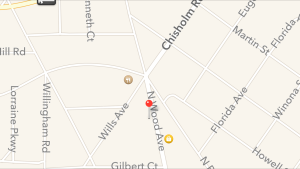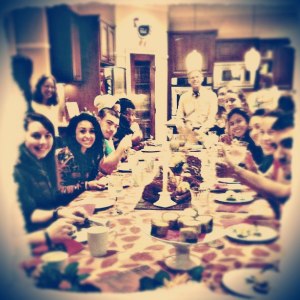While driving through Casper, Wyoming, I saw this rather amusing sign about networking. I had never considered the question of networking at funerals, but I certainly agree with the sentiment expressed in the sign. You shouldn’t “network” at funerals.
Unless, that is, you understand what the Biblical essence of networking is. If networking means trying to take advantage of people and making a business connection that serves your own selfish interests, then one could hardly think of anything more gauche than “funetworking.”
On the other hand, the biblical concept of networking that I have explained in The Kingdom Net: Learning to Network Like Jesus sees networking as the essential mechanism through which the Kingdom of God–God’s sovereign rule–spreads from person to person. It involves the establishment of relationships through which you can serve the needs of others effectively and with love.
In his own relationship building and service to others, the Gospels clearly portray Jesus as showing up at weddings and funerals. At the Wedding at Cana, he got pressed into service by his mother, converting water into wine and helping the happy couple avoid public embarrassment. That service unquestionably built his network, though nothing untoward or selfish occurred. Jesus showed up late for the funeral of Lazarus in John 11, and while others wailed and mourned and added to the stress of the family, Jesus served them by raising Lazarus from the dead. He did the same at the funeral of a little girl in Matthew 9:23-26. As a result, “The news about this spread all over that part of the country” (GNB). In Luke 7:12-16, Jesus ran into the funeral of a grown man and wound up raising him from the dead. Consequently, “They all were filled with fear and praised God. ‘A great prophet has appeared among us!’ they said; ‘God has come to save his people.'”
Why does anyone go to a funeral? I attend them to offer my sincere respect, affection, and help for the family of the person who has died. I usually see other friends there, and I offer and receive comfort from the renewal, and often, deepening of the relationship. If you see an opportunity to help someone at a funeral, the question “What would Jesus do?” has an obvious answer. He’d step in to help.
In the highest and best sense of the word “networking”–the Jesus Way of Networking–funerals turn out to offer an excellent opportunity for Kingdom Networking that seeks to serve others and express God’s rule in every situation.
Copyright©2013 by Joseph L. Castleberry. All rights reserved. http://www.josephcastleberry.com; joe@josephcastleberry.com
Dr. Joseph Castleberry is President of Northwest University in Kirkland Washington. He is the author of The Kingdom Net: Learning to Network Like Jesus and Your Deepest Dream: Discovering God’s True Vision for Your Life . Follow him on Twitter at @DrCastleberry and at http://www.facebook.com/Joseph.Castleberry.



